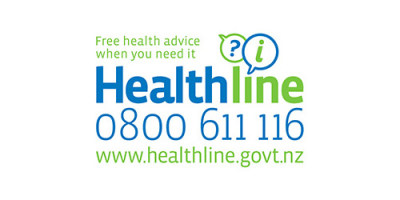Advance Directive in Mental Health | Whakaaro Pono
What is an Advance Directive Whakaaro Pono in Mental Health Care & Treatment?
An Advance Directive | Whakaaro Pono sets out your choices regarding your future mental health care. It is intended to be used in situations where you are not able to tell services what you want because you are too unwell.
An Advance Directive indicates the type of treatment you prefer to receive if you become unwell, and you can specify treatments you prefer not to have. It cannot override the Mental Health Act or the Privacy Act, but it can help your care team take into account your personal needs, values and beliefs.
An Advance Directive needs to be made when you are well. It cannot be made by anyone else on your behalf and you must be making it of your own free will. The Mental Health service has a formal procedure in place for using an advance directive.
How do I create an Advance Directive?
Step 1
Decide what the most important aspects of your care are that you wish to cover. The Advance Directive example shows you what to consider.
It can be in a written format or a video format.
Step 2
Decide on who you would like to help you develop your Advance Directive. It could be a:
-
Whānau or family member
-
A good friend
-
Nelson Compass worker
-
Blenheim Mental Health Advocacy worker
-
Care Manager/Psychiatrist
-
Māori Health cultural support worker
Have a discussion about:
-
What happened last time
-
What worked well
-
Medications
-
Strategies that help and strategies that don’t help
Step 3
Having gathered all the information together, you can now write it up (see Advance Directive template examples below). You can use our suggested format or do it in a way you feel comfortable.
Standard format:
Letter Format:
Certain criteria need to be met to ensure the mental health service will take your Advance Directive into consideration. These criteria are:
-
A registered health professional has assessed you as competent (of sound mind) and you were fully informed at the date of the Advance Directive being written and this is verified by the signature of the registered health professional.
-
Depending on the circumstances it is possible that not all preferences will be able to be acted on. However, the clinical team will consider your preferences and act on these where it is safe and practical to do so.
-
The consumer made the directive of their own free will and affirms this on the Advance Directive.
-
The Advance Directive is current and signed by you.
Step 4
Once you have a draft copy, discuss it with the people that helped you create it. Make any adjustments and then confirm your final version. Sign and date the final version, and have your registered health professional sign it as well.
It is now ready to be put in a place for when and if you need it.
Have a copy for:
-
Yourself
-
Whānau or family members
-
Give a copy to your GP
-
Other people who support you
-
Care Manager/Psychiatrist - ask your Care Manager or Psychiatrist to put a copy in your electronic health records. Or scan your signed Advance Directive and email it to: [email protected] to be added to your records.
Additional support
The following agencies are services that will support you in writing an Advance Directive or can review one you may have written yourself:
Te Whatu Ora - Nelson Marlborough Consumer Advisor
Phone: (03) 546 1410
Mental Health Advocacy Service Blenheim
Phone: (03) 579 5304
Nikau Hauora Hub
Phone: (03) 539 3760
Compass
Phone: (03) 548 2798 ext 6
Te Piki Oranga Māori Wellness Services
Phone: 0800 672 642
Yellow Brick Road (Supporting Families Nelson)
Phone: (03) 546 6090 ext 0
Supporting Families Marlborough
Phone: (03) 577 5491
General Practice
Contact your GP
Page last updated: 02/12/2022





